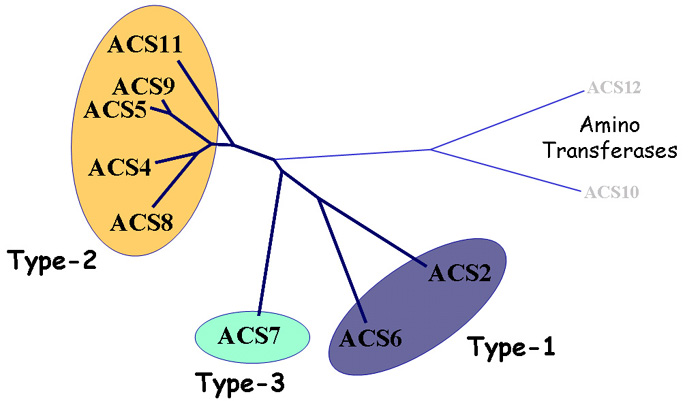
The Biosynthesis of Ethylene
The ethylene biosynthetic pathway has been elucidated in a series of elegant studies by a number of laboratories. Ethylene is derived from the amino acid methionine, which in the first step is converted to S-adenoysl-methionine (AdoMet) by AdoMet synthetase. AdoMet serves as a precursor in a number of biosynthetic pathways, including the production of polyamines. ACC synthase (ACS) catalyzes the conversion of AdoMet to 1-aminocyclopropane-1-carboxylic acid (ACC), which is the first committed and in most instances the rate-limiting step in ethylene biosynthesis.

Ethylene biosynthetic pathway: The enzymes catalyzing each step are shown above the arrows. AdoMet: S-adenosyl-methionine; Met: methionine; ACC: 1-aminocyclopropane-1-carboxylic acid; MTA: methylthioadenine.
In the plant species that have been carefully examined, ACS is encoded by a multi-gene family, different members of which are differentially expressed in response to various developmental, environmental and hormonal factors. In Arabidopsis, there are twelve ACS genes called ACS1-ACS12. The ACS3 gene is most likely a pseudogene and ACS1 encodes a non-functional ACS (Liang et al., 1995). As in other plant species, the Arabidopsis ACS gene family displays differential transcriptional responses to various inducers.
